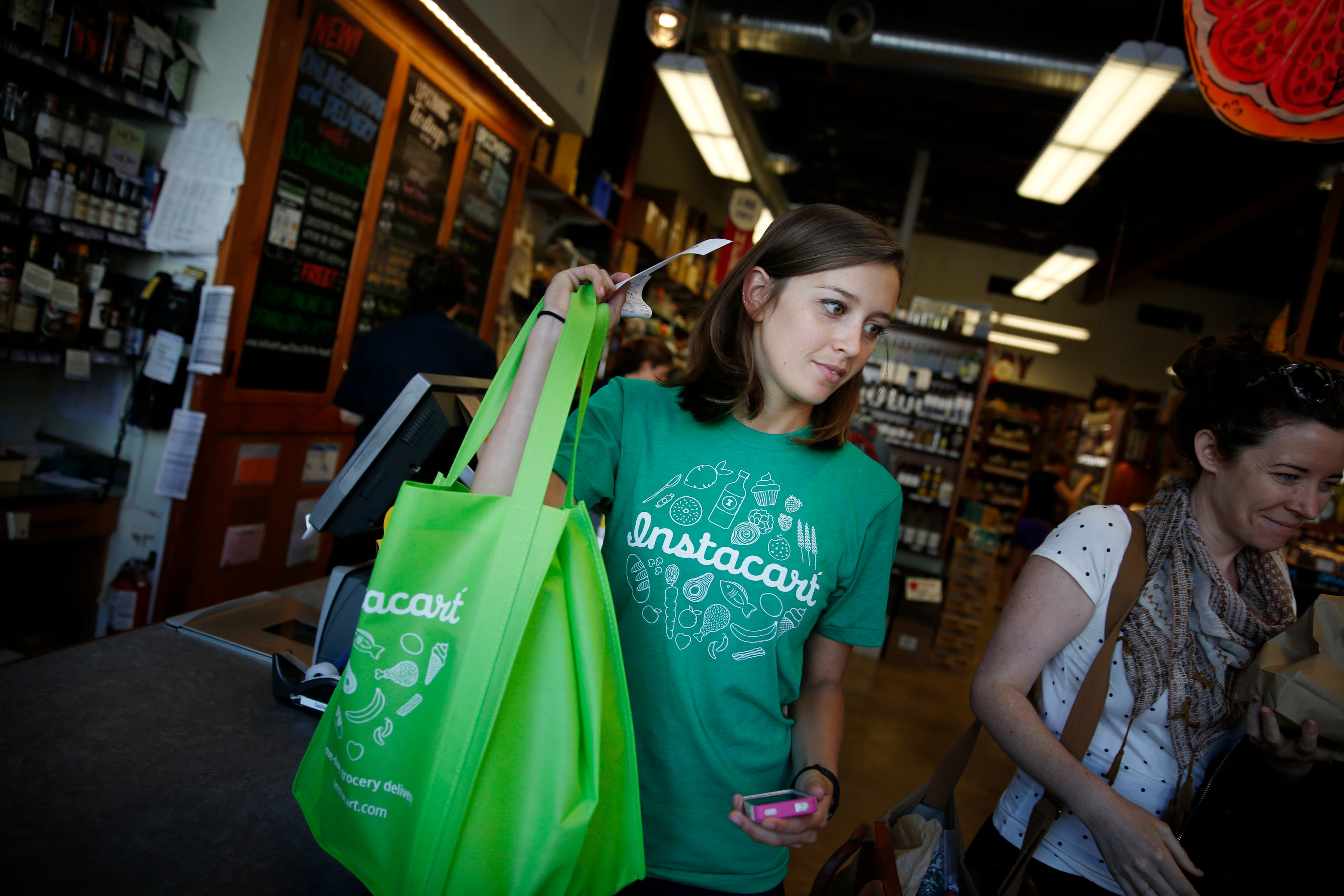Grocery delivery company Instacart is going public.
The IPO for the San Francisco company—which filed paperwork Friday with the U.S. Securities and Exchange Commission and plans to trade on the NASDAQ stock exchange under the symbol “CART”—is expected to happen in the next few weeks.
The number of shares and the price haven’t yet been determined, the company said. PepsiCo has agreed to buy $175 million in convertible preferred stock in a private placement, Instacart said.
The IPO is a long-awaited step for Instacart, which was founded in 2012 and now provides delivery from 85% of U.S. grocers—that’s more than 80,000 stores. The company says it has 7.7 million active customers who spend about $317 per month on the platform.
In a letter to investors, Instacart CEO Fidji Simo said the online grocery sector has tremendous potential: The U.S. grocery market is a $1.1 trillion industry, but only 12% of sales are made online. She expects that figure to at least double over time.
“We have demonstrated our ability to help our retail partners drive strong growth and stay competitive in a complex and increasingly digital industry,” Simo wrote in the missive.
The IPO is a long-awaited step for Instacart, which filed privately for an IPO in May 2022 but delayed those plans last fall when the markets were roiling due to recession fears. There were just 71 IPOs in the U.S. last year—the lowest number since 2009, according to Renaissance Capital.
However, a resurgent market is seeing more IPO activity this year.
Fifty-two IPOs were held in the first half of 2023, Renaissance Capital said. Renaissance said Instacart could raise up to $1 billion with its offering.
In its IPO filing, Instacart said its orders grew by 18% to 262.6 million between 2021 and 2022. But that pace has slowed this year. In the six months ending June 30, Instacart’s orders were up less than 1% to 132.9 million.
Instacart faces pressure from a number of competitors, especially as consumers look for ways to cut costs in a time of high food-price inflation. In July, Instacart controlled 22% of U.S. online grocery sales, according to YipitData, a market research firm. That was down from 27% in the same month a year ago. Walmart controlled 62% of the market, up from 54% last year.
Third-party apps like DoorDash and Uber Eats are also growing quickly in the grocery sector. DoorDash—which began providing grocery delivery in 2020—set a record for total orders in the April-June period as deliveries from groceries and convenience stores accelerated.
Still, Instacart’s revenue was up 31% to $1.47 million in the first six months of this year. That’s largely due to increases in advertising fees Instacart collects from retailers and food companies.
Growing advertising has been a priority for Simo, a former Facebook executive who became Instacart’s CEO in 2021. Simo, who was born in France and comes from a family of fishers, has said advertising helps make delivery cheaper for customers.
